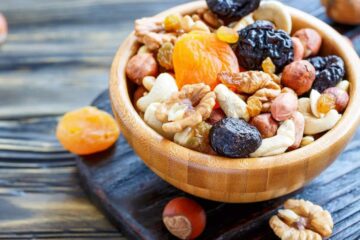Stephen O’Rahilly, an unmistakable master on stoutness and other metabolic issues — who battles with his own weight — shed around 20 pounds in the a half year before getting sick with covid-19. He accepts this likely shielded him from genuine infection, and possibly spared his life.
“My involvement in the infection wasn’t so awful,” says O’Rahilly, co-head of the Wellcome Trust-MRC Institute of Metabolic Science at the University of Cambridge in Britain, who said unobtrusive eating routine changes and exercise helped him shed the weight and likely empowered him to get away from the most noticeably terrible impacts of covid-19.
“No requirement for [intensive care], only five days in clinic, snappy recuperation, back in all day work and playing enthusiastic singles tennis inside three to about a month of release,” he says.
On the off chance that anybody required motivation to get in shape, the novel coronavirus gives an amazing motivator.
Stoutness, a critical general medical issue among both American grown-ups and kids, is one of the hazard factors for extreme illness and passing from covid-19, the infection brought about by the coronavirus. Others incorporate more seasoned age and such basic ailments as coronary illness and diabetes, them two identified with weight.
Heftiness developed from 30.5 percent to 42.4 percent among American grown-ups somewhere in the range of 2000 and 2018, while serious weight rose from 4.7 percent to 9.2 percent, as indicated by the Centers for Disease Control and Prevention. Also, weight adds to coronary illness, stroke and Type 2 diabetes, which increment the hazard.
Scientists don’t yet have the foggiest idea why heftiness compounds covid-19. They are attempting to unwind the reasons, with a few thoughts under investigation. “Unmistakably we have to ponder what it is about the fat express that makes covid-19 all the more destructive,” O’Rahilly says.
Yet, they concur that single direction to almost certainly lessen the hazard is to do what O’Rahilly dropped: some abundance pounds.
“Age remains the most grounded hazard factor for covid-19, additionally being male or having explicit ailments, however as we can’t change age or being a male, weight might be the major modifiable hazard factor for serious covid-19,” says Naveed Sattar, teacher of metabolic medication at the University of Glasgow’s Institute of Cardiovascular and Medical Sciences.
“A few nations, for example, the U.K., have now begun to adopt a more grounded strategy to the anticipation and the executives of heftiness,” Sattar says, with an open crusade to urge its residents to get more fit as a way to forestall extreme covid-19 malady.
Sattar says that, in addition to other things, being genuinely overweight makes it more hard to inhale, expanding covid’s hurtful impacts on the lungs.
“At the point when individuals convey additional weight, this can decrease their lungs’ capacity to separate oxygen from the air, and abundance weight likewise impedes the heart and veins capacity to convey this oxygen around the body, as veins become stiffer and pulse levels go up with stoutness,” he says.
Moreover, Sattar says, weight makes the blood become thicker or stickier than ordinary, a condition aggravated by the infection. This builds the chance of blood clusters. “Additionally, serious covid-19 responses seem connected to the body’s insusceptible reaction going into overdrive, and some theorize this is more prominent in those with abundance muscle versus fat,” he says.
O’Rahilly believes that interruptions in the body’s digestion brought about by corpulence might be the prime explanation being overweight adds to extreme covid-19.
“Clarifications around ‘overwhelming chests’ and upper aviation routes limited by fat simply don’t cut it,” he says. “We need to look carefully into the metabolic impacts related with heftiness. At exactly that point will we perhaps discover ways to intercessions that can truly be defensive.”
The infection enters the profound pieces of the lung through ACE2 receptors, proteins joined to cells in the lung and somewhere else, which is the explanation behind lung irritation and the development of little nearby clusters.
The vast majority bite the dust of covid-19 since they can’t get enough oxygen into their bodies through their lungs. This happens in light of the fact that the slender layer of lung cells that oxygen must go through gets harmed and swollen by the infection.
“This is additionally convoluted by the way that the blood gracefully to the pieces of the lungs that regularly take up oxygen is closed off by little clumps, which are a truly striking component of covid-19,” O’Rahilly says.
Weight can impact a few stages in this procedure, O’Rahilly includes.
“Weight is unequivocally connected with a ‘debilitated’ metabolic state called insulin opposition,” he says, alluding to a condition where the tissues that regularly handle glucose in the body become less receptive to insulin, provoking the degrees of insulin in the blood to move higher to redress. This “is frequently the preface to hefty individuals getting diabetic,” he says.
Insulin obstruction causes increments in aggravation delivering particles, he says, and is related with rising blood levels of the Complement segment 3 protein, some portion of the body’s “natural” or first barrier safe framework, which assaults cells contaminated with infection. An excess of C3, in any case, causes over the top irritation and little clusters in veins.
“Truth be told, in covid-19, there is acceptable proof that Complement is associated with the harm seen to lung tissues, and its little veins,” O’Rahilly says. “Stoutness and insulin opposition might be ‘stacking the weapon,’ with an excessive amount of Complement, inclining one to more noteworthy harm when the infection tags along.”
Heftiness additionally prompts a decrease of adiponectin, a hormone emitted by fat tissue, which is the place the body stores fat. Hefty individuals will in general have low levels, while meager individuals have more. Adiponectin shields the lung vein linings from irritation, he says. Alongside the development of “stickier” platelets, which start clusters, heftiness likewise builds levels of another protein, plasminogen activator inhibitor 1 (PAI-1), that keeps coagulations from separating.
“The entirety of the above impacts of insulin opposition are entrenched and recreated — their effect on the more terrible result of covid-19 in the fat stays hypothetical yet almost certain in my view,” O’Rahilly says.
Candida Rebello, a postdoctoral analyst at the Pennington Biomedical Research Center, concurs that numerous elements are likely associated with stoutness’ perilous impact on covid-19 — refering to insulin opposition, interminable aggravation of fat tissue and the impacts of the weight of abundance fat around the lungs — however she hypothesizes that leptin, a craving controlling hormone delivered by fat cells, additionally may assume a job.
“At the point when fat stores are low, leptin signs to the mind to build hunger,” she clarifies. “Nonetheless, when fat stores increment, leptin increments. At the point when fat stores are expanded — as in stoutness — a condition called leptin obstruction creates where the cerebrum doesn’t get a sign to bring down craving. The fat cells keep on emitting leptin with an end goal to persuade the mind to bring down hunger, causing blood levels of leptin to rise.”
Normally, the body secretes leptin to address its issues, she says.
“When leptin levels are out of equalization, as happens in corpulence, the safe reaction could be ineffectual, lacking or misled,” she says. “Viral replication increments and its freedom lessens. Harm to tissue can encourage another reaction and a spiraling impact that can make a great deal of harm tissues and organs.”
Examination is as yet in progress. In any case, there’s no compelling reason to sit tight for it, O’Rahilly says. Start taking in less calories than you are consuming, in any event, for a couple of days. That is sufficient for insulin protection from begin to improve.
“[This] might be something that most overweight individuals can accept,” he says, “even before they see a very remarkable change on the scales or in their garments.”


